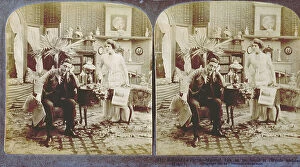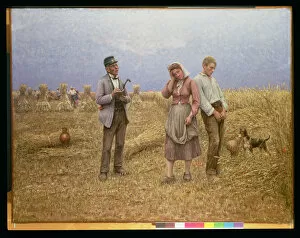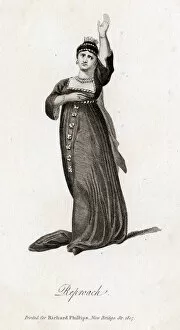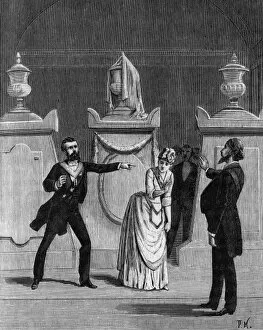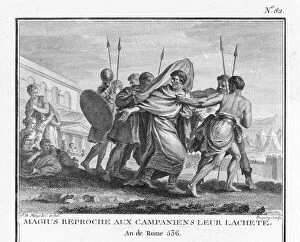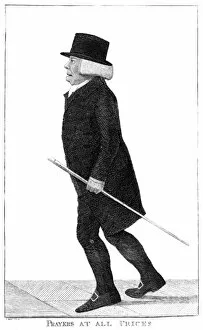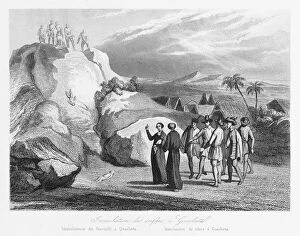Reproach Collection
"Reproach: A Powerful Expression of Disapproval and Confrontation" In the captivating oil on canvas artwork titled "A Reproval
All Professionally Made to Order for Quick Shipping
"Reproach: A Powerful Expression of Disapproval and Confrontation" In the captivating oil on canvas artwork titled "A Reproval, " the artist skillfully captures a moment of reproach, as a stern figure confronts another with disapproval. The intensity in their gaze and body language speaks volumes about the weight of this reprimand. Moving from art to history, we encounter an intriguing scene involving Napoleon and lepers, and is said that even amidst his grandeur, Napoleon did not shy away from showing reproach towards those suffering from this affliction. This unexpected gesture reveals a complex aspect of his character. Stage gestures can also convey powerful messages of reproach. Antoine Chabaud's work showcases such a moment, where an actor's expressive movement highlights their disapproval towards someone or something. Literature too has its share of moments depicting reproach. In Frank E Smedley's novel "Lewis Arundel or The Railroad of Life, " illustrated by Mungo Watson, we witness characters being subjected to reproval for their actions or choices. Similarly, Charles Dickens' masterpiece "Great Expectations" features an engraving illustrating one such instance where reproach plays a significant role in shaping the narrative. Stepping back into history again, we find ourselves observing Decius Magius opposing Carthaginian domination in ancient Capua—a brave act that surely earned him both admiration and reproach alike. Even within royal circles, no one is exempt from experiencing moments of confrontation through reproval. As depicted in "The Lady's Lodge - Palladium Rite, " individuals are held accountable for their behavior regardless of social status or privilege. Taking us further back in time to ancient Rome, Tiberius, Messalina, and Caligula engage in heated exchanges filled with mutual blame and censure—an intense portrayal capturing how even emperors were not immune to feelings of regrettable actions deserving rebuke.



